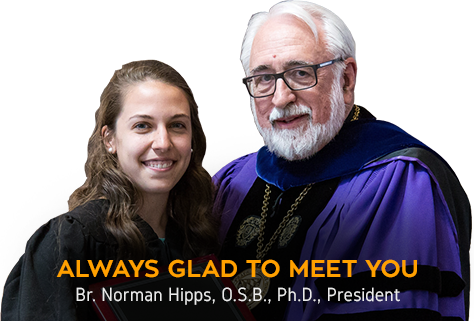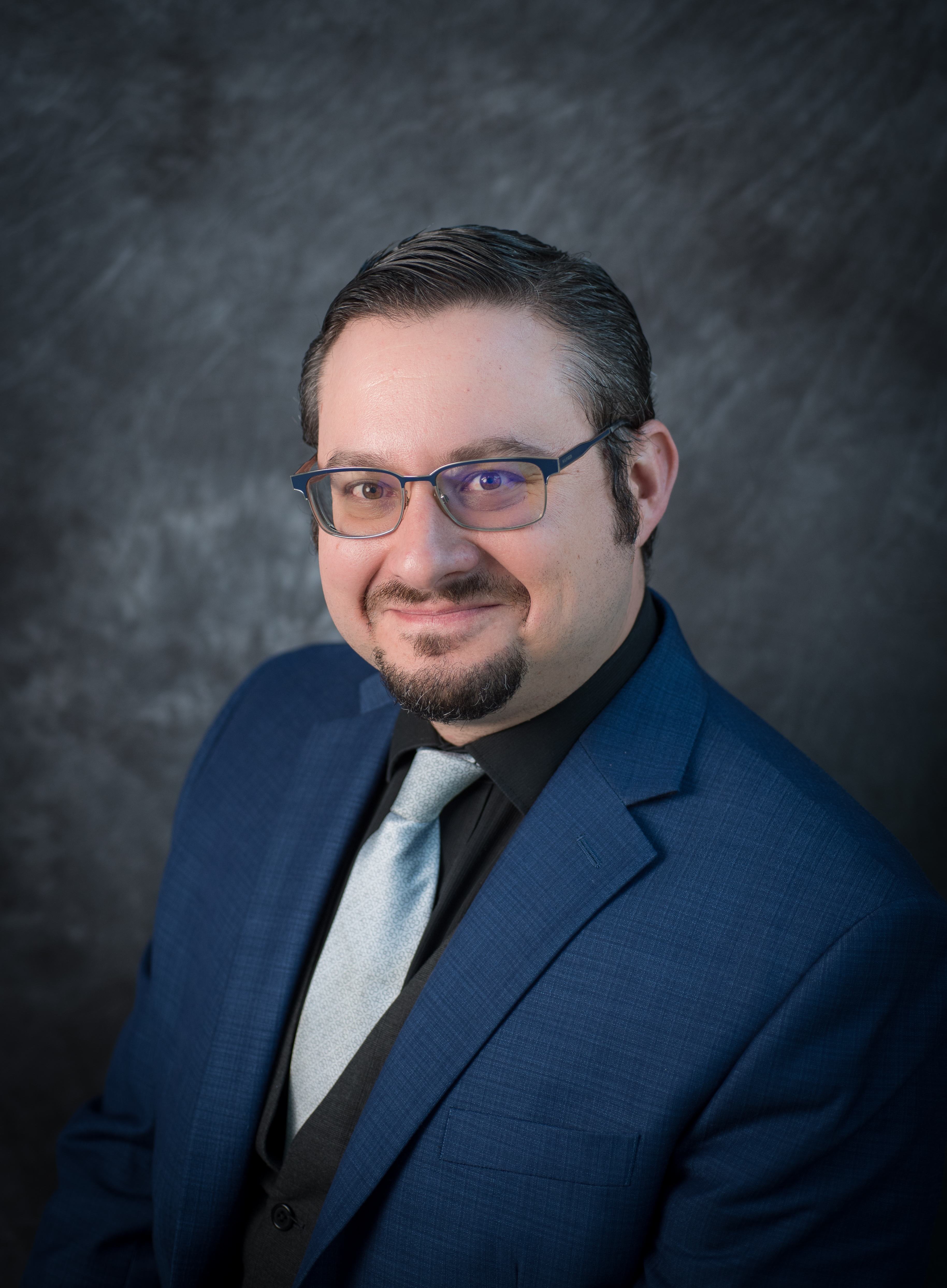It is obvious that there have been a lot of challenges confronting people around the world during the pandemic. One specific challenge of COVID that impacts many people is a decreased ability to communicate.
In my research in the field of organizational behavior, I have examined interaction challenges among employees of organizations. Of course, COVID has exacerbated these challenges. But, additionally, the pandemic has also created communication difficulties for extended families and friends who cannot see each other face-to-face. I am saddened that the pandemic may force mine and others’ families to limit their holiday gatherings in the upcoming months. The pandemic also impacts schools that must find ways to offer flexible instruction methods that allow for social distancing. Saint Vincent has done an exceptional job of doing just that as we extend our culture of community and hospitality to those students connecting with us online. Communicating via art, live music and other performances has also been impacted. Personally, my band has played only three shows to date in 2020 with little likelihood of doing many more. In comparison, we usually play about 40-50 per year.
New forms of interacting have replaced other ways of communicating, if only in the short-term. We rely more and more on technology. I admit that I’ve found myself becoming increasingly self-conscious when sharing my webcam during virtual interactions. And I’m getting fatigued by these modes of communication as are many other people (Fosslien & Duffy, 2020). Of course, there are a variety of reasons why teleconferencing platforms (such as Zoom, GoTo, WebEx, etc.) increase fatigue, but one of the main reasons for me is the sheer amount of time spent on them. One Friday, I added up all of the hours that I was engaged in teleconferencing communications and found that I had spent more than 10 of my 17 waking hours on Zoom!
We see fewer people face-to-face and, when in-person interactions do occur, we are physically far apart. Of course, it is very difficult to tell facial expressions (a characteristic of social interactions that I find to be so important) while wearing a mask.
Despite these challenges, I personally embrace these changes readily. I believe it is worth doing so for interactions to eventually get back to normal. And I hope that, if many people do the same, these changes will not be needed in the long-term.
But, until our interactions are able to get back to normal, I’ve been thinking about ways that communication can be improved during COVID-19. My initial reactions on intergenerational workplace interactions during the pandemic were recently published in the Journal of Intergenerational Relationships (2020; send me an email and I can provide you with a copy of that research). Below are some suggestions adapted from that paper to a broader consideration of interactions that I believe can help to improve communication in the age of COVID.
- Remember to keep in touch with those that you care about (and that care about you). COVID has created a spatial distance between many close family and friends that was not there previously. And, resultingly, people miss each other. I don’t know about you, but added responsibilities brought on as a side effect of the pandemic make my days seem busier than ever. Yet, it is important to find the time to connect with friends, family and loved ones. What has worked for me is to set regular times throughout the week to connect over a web platform or phone.
- Be open about your feelings, challenges and limitations. Many people are experiencing fatigue from web-enabled meetings. As such, there is a need to balance the importance of connecting with others with not wearing ourselves out on too many Zoom calls. It’s important to know when you’ve had enough web meetings. Be open with those you want to connect with about your communication challenges and let them know if you would like to reschedule. More generally, openness is also about talking with your loved ones about the struggles, thoughts and even accomplishments you’ve experienced broadly during the pandemic. Expressing feelings openly and honestly can help individuals to manage them.
- Learn and play together. Some of the best web-enabled interactions I’ve had during the pandemic have helped me to learn and grow. For example, I joined up with a group that discusses aspects of the works of a famous author who we all hold in esteem. We meet every once in a while to learn from each other about our mutual interest. In a different weekly call I participate in, we occasionally play a web-enabled game where we have to guess the artist and meaning behind drawings that we anonymously make on our own individual devices. In still another web-enabled conference, friends and I listen to music via livestream together. All of these activities help me to connect with others while de-stressing.
- Be kind. This is perhaps the most important recommendation. During the pandemic, people are even more stressed out and tired than they might normally be. It is for this reason that we all must also be empathetic and kind. You never know what the person you’re communicating with might be going through. Be kind because we’re all in this together.
I’d love to hear your thoughts! What strategies have you used in your interactions to successfully communicate during the pandemic? Email me at michael.urick@stvincent.edu or find me on Facebook and LinkedIn. Also, don’t forget to check out my new Twitter account!
I hope that you all stay happy, healthy and safe.
Dr. Mike Urick
Fosslien, L., & Duffy, M. W. (2020). How to combat Zoom fatigue. Harvard Business Review.
Urick, M. (2020). Generational Differences and COVID-19: Positive Interactions in Virtual Workplaces. Journal of Intergenerational Relationships, 1-20.


 中国学生
中国学生 Estudiantes
Estudiantes




